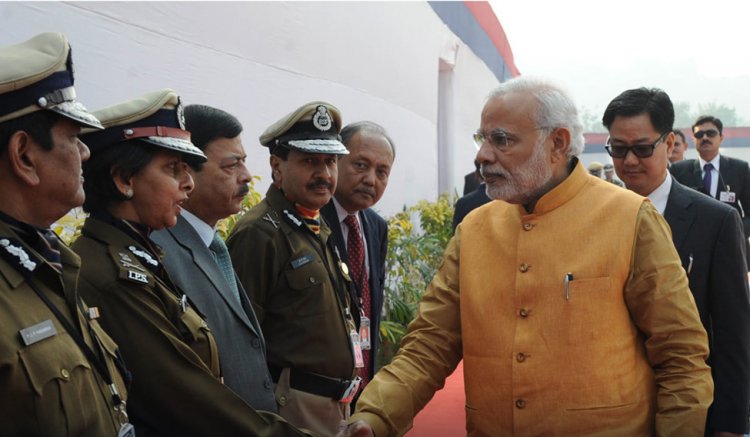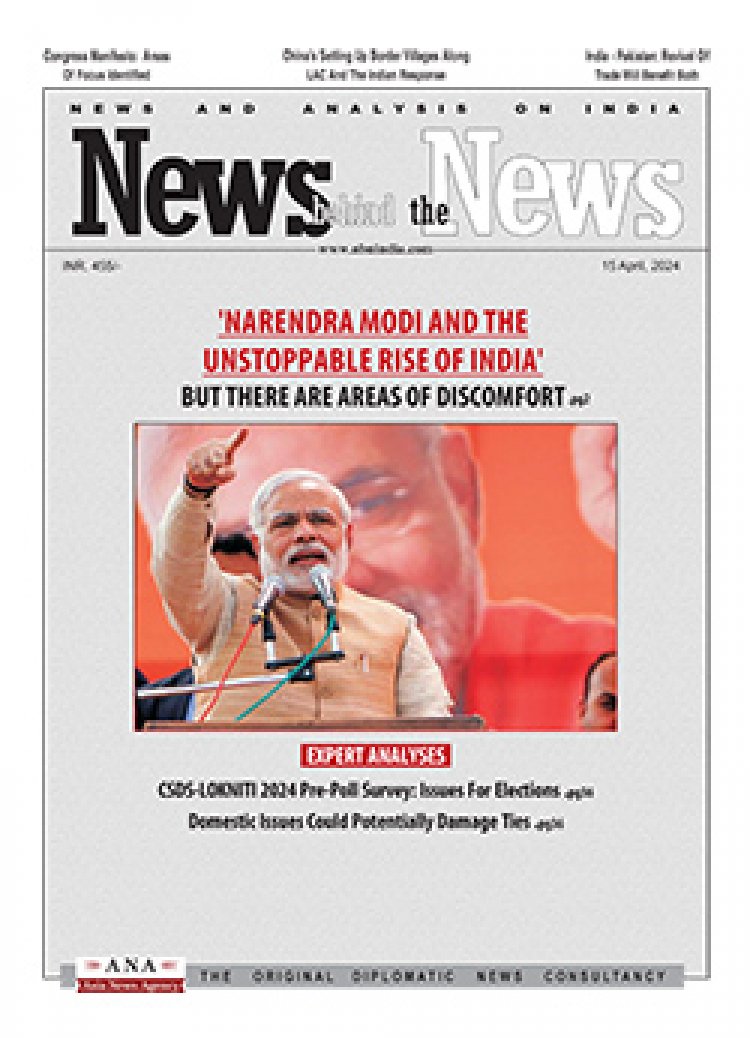Conference of Director Generals of Police: Threat from Radicalisation Flagged
Asia News Agency

Deeptiman Tiwary (journalist at The Indian Express) reports “police officers flagged the role of Islamist and Hindutva organisations..” Prime Minister Narendra Modi and Union Home Minister Amit Shah attended the conference.
The role of such organisations were flagged in papers submitted by officers at the conference that was held from January 20-22 in Delhi.
Categorisation of radicalisation
One paper described the organisations, such as VHP and Bajrang Dal, as radical. Another listed the Babri Masjid demolition, growth of Hindu nationalism, cases of beef lynching and the ‘ghar vapsi movement’ (homecoming) as breeding grounds for radicalisation of youth.
Several officers argued for greater representation of minorities in the polity and reservation for Muslims to tackle radicalisation.
In another paper, an SP-rank officer categorised radicalisation under left wing, right wing and Islamist fundamentalism. “Far-right individuals or groups…have an authoritative concept of the state, in which the state and the people, all of which are ethnically homogenous, should merge into a single unit. India though being a plural society as well is being portrayed as inching towards majoritarianism. To name a few are Anand Marg, VHP, Bajrang Dal, Hindu Sena, etc,” the officer said in the paper.
The officer described Islamic fundamentalists as a “looming threat”. “The Islamist outlook is one that essentially divides the world into two distinct spheres: ‘Muslims’ and the ‘rest’. Ex: PFI and frontals, Da’wate-Islami, Towheed, Kerala Nadvathul Mujahideen etc,” his paper said.
Among challenges, the officer flagged “disproportionate usage of security establishment (Police and Intelligence)”; minimal role of “scholars, psychologists, civil society”; “missing synergy between online and offline efforts”; “lack of curative policies”; and, “Framework Flaws”.
In a separate paper, another SP-rank officer flagged Islamic fundamentalism and Hindu extremism as challenges, among others. He labelled them under politico-religious radicalism linked to outfits like ISIS; right-wing radicalism linked to fascism, racial supremacism and ultranationalism; and, left-wing radicalism associated with Maoist violence.
This paper associated “Jamaat-e-Islami, Jamiyat Ahle-Hadith, alienation and mistrust… advent of social media, role of global Islam, role of mainstream media, Hindu extremism, and civil society activists” with radicalisation.
“The demolition of the Babri Masjid along with the growth of Hindu nationalism, cases of beef lynching and ‘ghar vapsi movement’ has been a breeding ground for extremist groups to recruit and radicalise young minds,” the officer said in his paper.
Among the solutions listed were: “De-redicalisation, economic growth and equal opportunities”; more opportunities for “minorities…to be part of political and administrative processes”; modernisation of madrasas and the setting up of industrial enterprises “in the areas of minorities”.
















